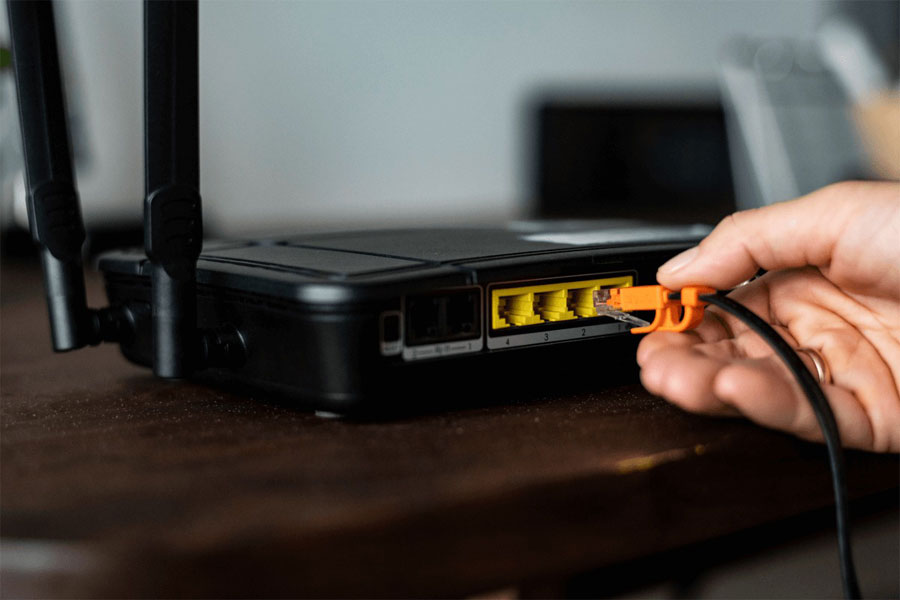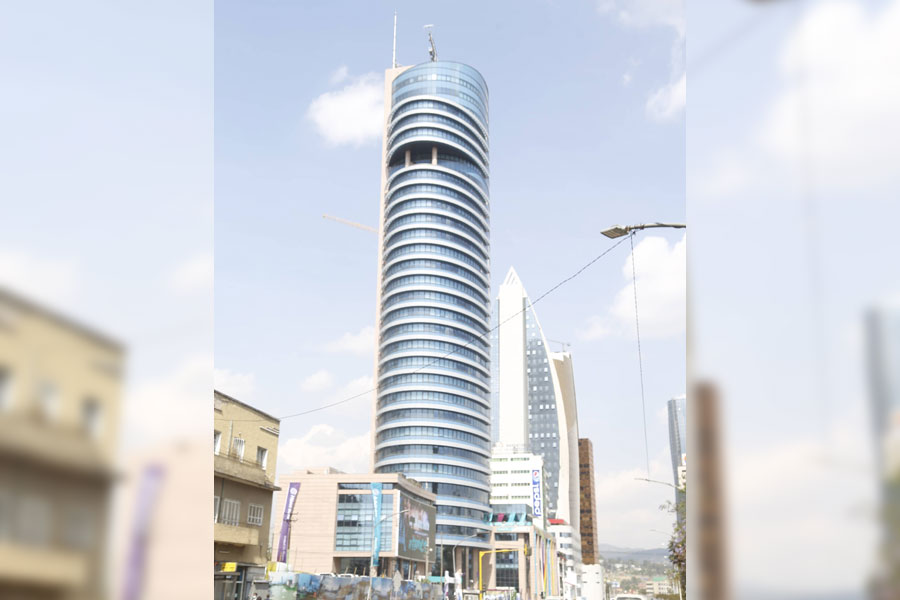
Fortune News | Sep 29,2024
Nile Insurance's financial year concluded on a high note, posting an impressive performance, with premium collections exceeding industry averages and delivering substantial returns to its shareholders.
The firm posted a 51pc surge in net profit, reaching 298.3 million Br, positioning itself firmly between its peers: United and Nyala insurance companies. Under the managment of Nigus Anteneh, its chief executive officer (CEO), the firm attributed its success to soaring premium revenues, headed claim expenses, and robust investment income. Despite facing inflation-driven claim costs and fierce market competition, Nile Insurance saw a 30.1pc increase in gross written premiums and a 52.2pc rise in investment income.
Mehari Alemayehu, the board chairperson, was upbeat about the company's performance while addressing an annual general assembly held at the firm's semi-finished headquarters in the financial district, on Ras Abebe Aregay Rd.
Nile Insurance's net profit reached 298.3 million Br, placing it 30 million Br short of the profit United Insurance posted for the operational year 2022/23. Its earnings per share (EPS) stood at 39.6pc, surpassing the private insurers' average five percentage points and Nyala Insurance's 35.4pc, though trailing behind United Insurance's 47.9pc, the highest in the industry.
Such profit growth after tax was mainly driven by a substantial increase in gross written premium, fees, commission income, and a surge in investment income. Gross written premium, including Takaful, was 55 million Br shy of a one billion Birr mark. The firm’s “Aman Takaful” business, which allows members to pool funds to cover each other's losses, claimed eight percent shares in the niche market, trailing behind Global Insurance’s 45pc, Awash Insurance’s 31pc, and Oromia Insurance’s 16pc.
Despite ceding 23pc of these to reinsurers, a slight increase from last year's 24.3pc, Nile Insurance maintained a commendable premium retention level, according to Abdulmenan Mohammed (PhD), a financial analyst based in London. He praised the performance, attributing the success to effective management.
The growth in premiums and retention came alongside increased claims, with net benefits and claims rising by 35.5pc to 443.37 million Br. It exceeded last year's industry average of 341.1 million Br and surpassed Nyala's 370.81 million Br, although it was below United Insurance's 463.54 million Br. The CEO attributed the rise in claims to the escalating costs of spare parts due to the inflation rate but sounded confident that the company has stringent measures to prevent claims leakage.
"We maintained the ratio below the regulator's minimum requirement," he told Fortune.
Despite facing price-based and what its executives grumbled was "unethical practices", Nile Insuarcne's investment activities thrived. Rent, dividends, and interest incomes soared by 52.2pc to 222.62 million Br. The firm earned 74.44 million Br in fees and commissions, a 32.6pc increase from the previous year. However, underwriting expenses also rose by 51.5pc to 64.39 million Br, with operating costs climbing. Wages and benefits soared by 29pc to 139.46 million Br, and other operating expenses reached 67.79 million Br, exhibiting an increase of 27.5pc.
Experts recommend better management of claims and growing expenses.
Nigus defended the expense increases, attributing it to increased commissions paid to agents and salary adjustments. He noted the strategic advantage of owning a headquarters, which helped save on rental costs, and asserted the firm's efficiency in handling claims.
Nigus has been an insurance industry veteran for 30 years, debuting as an operations clerk at the state-owned Ethiopian Insurance Corporation. He later served as Deputy CEO and Claims Manager at United and Abay insurance firms before joining Nile Insurance eight years ago. Under his management, Nile Insuarcne's total assets grew to 3.59 billion Br, an increase of 35.5pc from teh previous year. Although outpaced by Nyala Insurance's 3.82 billion Br, its asset growth exceeded United Insurance's 3.29 billion Br.
Of the total assets, 93.68 million Br was invested in properties, 494.43 million Br in fixed-time deposits, and 711.24 million Br in equity investments, accounting for 36.2pc of the total assets. The firm's liquidity improved, with cash and bank balances growing by 119.2pc to 184.44 million Br, which boosted their contribution to total assets from 3.2pc to 5.14pc. Its paid-up capital also increased by 29pc, with capital and non-distributable reserves making up 27pc of the total assets. It is a well-capitalised insurance firm that has far exceeded the regulator's minimum capital threshold of half a billion Birr.
"We'll keep investing," said Nigus.
Since its incorporation in 1995 with an initial equity of 12.5 million Br, Nile Insurance has grown its shareholder base to 193, with a paid-up capital of 833.94 million Br. Over nearly three decades, its branch network has expanded to 65, with three contact offices in the capital.
Biruk Gebremedhin manages one of these branches in the Ayer Tena area. He noted the intense competition in the insurance market but valued regulators' premium threshold policy, which he believes shielded the firm from cutthroat competition.
No less are shareholders pleased with the firm's performance.
Ephrem Ketema, who bought shares 15 years ago, expressed his excitement about the firm's results and earnings but also voiced concerns about the long-term impact of inflation on returns. He wants to see Nile Insurance diversify into untapped insurance products to generate robust income.
"I suggest focusing on underwriting life insurance," said Ephrem.
PUBLISHED ON
Jun 15,2024 [ VOL
25 , NO
1259]

Fortune News | Sep 29,2024

Agenda | Aug 17,2025

Year In Review | Dec 29,2022

Editorial | Mar 25,2023

Commentaries | Jul 18,2020

View From Arada | Sep 08,2024

Radar | Jul 15,2023

Commentaries | Jan 07,2022

Fortune News | Mar 09,2019

My Opinion | Jan 07,2022

Dec 22 , 2024 . By TIZITA SHEWAFERAW
Charged with transforming colossal state-owned enterprises into modern and competitiv...

Aug 18 , 2024 . By AKSAH ITALO
Although predictable Yonas Zerihun's job in the ride-hailing service is not immune to...

Jul 28 , 2024 . By TIZITA SHEWAFERAW
Unhabitual, perhaps too many, Samuel Gebreyohannes, 38, used to occasionally enjoy a couple of beers at breakfast. However, he recently swit...

Jul 13 , 2024 . By AKSAH ITALO
Investors who rely on tractors, trucks, and field vehicles for commuting, transporting commodities, and f...

Oct 11 , 2025
Ladislas Farago, a roving Associated Press (AP) correspondent, arrived in Ethiopia in...

Oct 4 , 2025
Eyob Tekalegn (PhD) had been in the Governor's chair for only weeks when, on Septembe...

Sep 27 , 2025
Four years into an experiment with “shock therapy” in education, the national moo...

Sep 20 , 2025
Getachew Reda's return to the national stage was always going to stir attention. Once...